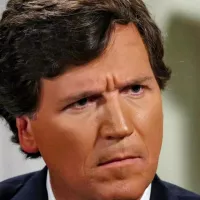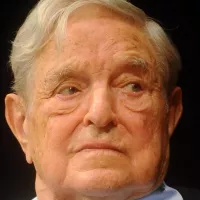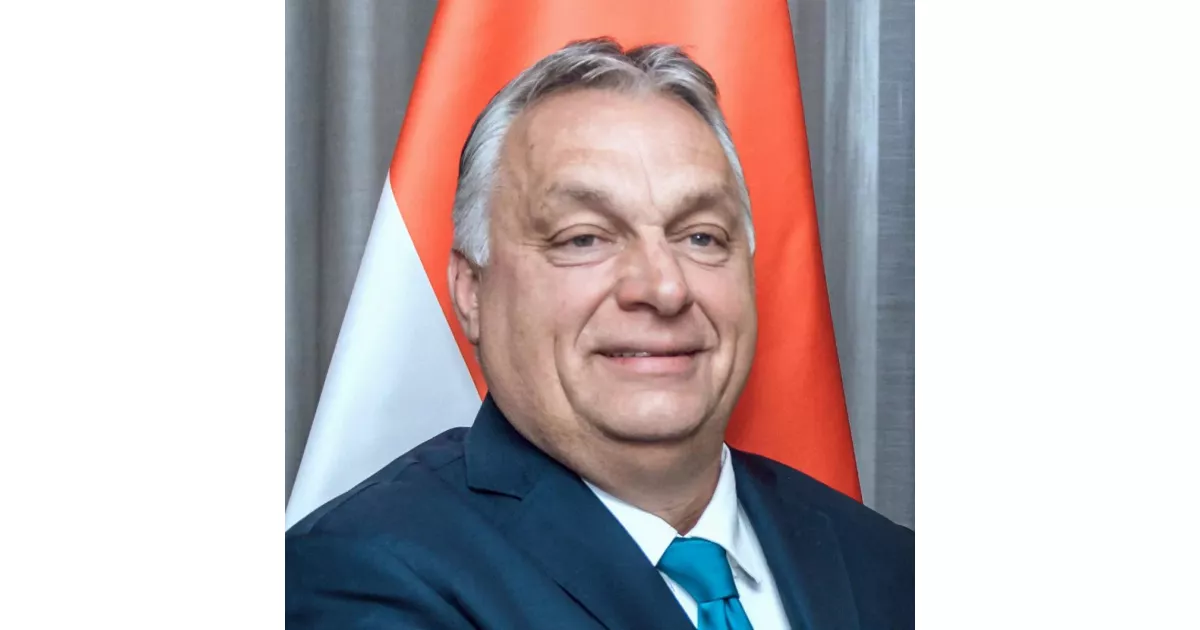Viktor Orbán is a prominent Hungarian politician and lawyer, currently serving as the Prime Minister of Hungary since 2010, a position he also held from 1998 to 2002. He has been the leader of the Fidesz party since 2003, and before that from 1993 to 2000. Orbán secured re-election as prime minister in 2014, 2018, and 2022, solidifying his long-standing influence in Hungarian politics. In November 2020, he became Hungary's longest-serving prime minister.
1920: The Trianon Treaty
The 1920 Trianon Treaty was a significant event that the 1999 "status law" aimed to address, due to its negative effects on ethnic Hungarian minorities in neighboring countries.
1949: The Hungarian Constitution of 1949
The Hungarian Constitution of 1949 was the constitution replaced on January 1, 2012 by Orbán's government with a new constitution drafted in 2011.
1956: Reference to Hungarian Freedom Fighters
During the European Parliament session in October 2024, Ursula von der Leyen referenced the bravery of Hungarian freedom fighters in 1956 when criticizing Orbán's current stance, questioning the rationale of blaming Ukraine for the war.
1956: Planned Demonstrations on Anniversary of 1956 Revolution
On 1 November, Orbán and his party announced plans to stage demonstrations across Hungary on the anniversary of the Soviet suppression of the 1956 Revolution. These events served as a memorial and protest, but the demonstrations were small and concluded by year's end.
May 1963: Viktor Orbán Born
Viktor Orbán was born in May 1963. He later grew up with two younger brothers, Győző Jr. and Áron.
1977: Family Moved to Székesfehérvár
In 1977, the Orbán family moved to Székesfehérvár, where Viktor Orbán secured a place at the prestigious Blanka Teleki school. Before this the family lived in Alcsútdoboz in Fejér County, where Orbán first lived while growing up and in 1973, moved to neighboring Felcsút.
December 1981: Martial Law in Poland
In December 1981, while Viktor Orbán was serving his military service, martial law was declared in Poland, a situation that led his friend Lajos Simicska to criticize the event. Orbán recalled expecting mobilization to invade Poland at that time.
May 1982: State Security Report
In May 1982, a state security report described Viktor Orbán as "loyal to our social system", despite his evolving political views during military service.
1983: Film Appearance
In 1983, Orbán had a minor acting role as a footballer in the Hungarian family film "Szegény Dzsoni és Árnika" (Poor Johnny and Arnica).
1985: Establishment of Századvég
In 1985, with Viktor Orbán's help, the college journal Századvég was established and funded by George Soros. It later became the press organ of Fidesz.
September 1986: Marriage to Anikó Lévai and police report.
In September 1986, Viktor Orbán married Dr. Anikó Lévai in Szolnok. Shortly before his marriage, a police source reported him as affiliated with an organization lecturing in the United States and West Germany, presenting themselves as "the country's expected future leaders."
1986: Marriage to Anikó Lévai
In 1986, Orbán married Anikó Lévai, a jurist, and together they had five children.
November 1987: Seminar at Lawyers' Special College of Social Sciences
In November 1987, Viktor Orbán welcomed a group of 150 delegates from 17 countries to a two-day seminar at the Lawyers' Special College of Social Sciences. The seminar, backed by the European Network for East–West Dialogue, focused on Perestroika, conscientious objection, and the prospects for a pan-European democratic movement.
March 1988: Founding of Fidesz
On March 1988, Viktor Orbán co-founded the Alliance of Young Democrats (Fidesz) with other students and activists. It was conceived as a challenge to the Hungarian Young Communist League.
April 1988: Part-time employment for the Soros Foundation
Since April 1988, Viktor Orbán was employed part-time by the Soros Foundation.
June 1989: Speech at Heroes' Square
On June 1989, Viktor Orbán gave a speech in Heroes' Square, Budapest, on the occasion of the reburial of Imre Nagy and other national martyrs of the 1956 Hungarian Revolution. He demanded free elections and the withdrawal of Soviet troops.
September 1989: Research fellowship at Pembroke College, Oxford
In September 1989, Viktor Orbán began a research fellowship at Pembroke College, Oxford, funded by the Soros Foundation. He worked on the concept of civil society in European political thought.
October 1989: Fidesz Becomes a Political Party
In October 1989, Fidesz, represented by Viktor Orbán, officially became a political party.
January 1990: Returns to Hungary
In January 1990, Viktor Orbán abandoned his project at Oxford and returned to Hungary with his family to run for a seat in Hungary's first post-communist parliament.
April 1990: Elected Member of Parliament
In April 1990, Viktor Orbán was elected Member of Parliament from Pest County and secured the first spot on the Fidesz candidate list.
September 1992: Elected Vice Chairman of the Liberal International
In September 1992, Viktor Orbán was elected vice chairman of the Liberal International.
April 1993: Orbán Becomes President of Fidesz
On April 18, 1993, Viktor Orbán became the first president of Fidesz. Under his leadership, Fidesz transformed from a radical liberal student organization to a center-right people's party.
May 1993: Leader of Fidesz's parliamentary group
Viktor Orbán served as leader of the Fidesz's parliamentary group until May 1993.
1994: Parliamentary Election
During the 1994 parliamentary election, Fidesz barely reached the 5% threshold. Viktor Orbán became MP from his party's Fejér County Regional List.
1995: Fidesz adopts Hungarian Civic Party name
In 1995, under Viktor Orbán's presidency, Fidesz adopted "Hungarian Civic Party" (Magyar Polgári Párt) to its shortened name.
April 1996: Chairman of the Hungarian National Committee of the New Atlantic Initiative (NAI)
In April 1996, Viktor Orbán was appointed chairman of the Hungarian National Committee of the New Atlantic Initiative (NAI).
1998: Chairman of the Committee on European Integration Affairs
Between 1994 and 1998, Viktor Orbán was chairman of the Committee on European Integration Affairs.
1998: Drop in inflation
In 1998 inflation was at 15%.
1998: First Trip Abroad as Prime Minister
In 1998, Orbán's first trip abroad as Prime Minister was to the World Cup final in Paris. He has reportedly not missed a World Cup or Champions League final since.
1998: Coalition Formed and Election Won
In 1998, Viktor Orbán formed a coalition with the Hungarian Democratic Forum (MDF) and the Independent Smallholders' Party (FKGP). The coalition won the 1998 parliamentary elections, and Orbán became prime minister.
1998: Bribery Scandal and dispute with Budapest City Council
In 1998, two of Viktor Orbán's state secretaries in the prime minister's office had to resign due to their implication in a bribery scandal involving Lockheed Martin Corporation. The government was also involved in a dispute with Budapest City Council regarding the cancellation of two major urban projects.
March 1999: Hungary Joins NATO
In March 1999, Hungary joined NATO along with the Czech Republic and Poland, after Russian objections were overruled. Hungary's membership in NATO demanded its involvement in the Kosovo crisis and modernization of its army. However, NATO membership also dealt a blow to the economy due to a trade embargo imposed on Yugoslavia.
1999: Passing of the "status law"
In 1999, Hungary garnered international media attention for passing the "status law" concerning ethnic Hungarian minorities in neighboring countries. The law aimed to provide education, health benefits, and employment rights, addressing the negative effects of the 1920 Trianon Treaty.
1999: Fiscal deficit at 3.9%
In 1999, the fiscal deficit was at 3.9%.
November 2000: Fidesz Leaves Liberal International
In November 2000, Fidesz, under Viktor Orbán, left the Liberal International and joined the European People's Party (EPP).
2000: Accusations of Anti-Europeanism
In 2000, opposition parties and the left-wing press criticized Orbán for his comment that "there's life outside the EU", interpreting it as anti-European sentiment and sympathy for the radical right.
September 2001: Gallup Poll Results
According to a September 2001 poll by the Gallup organization, a joint Fidesz – Hungarian Democratic Forum party list would have support from up to 33% of the voters, with the Socialists drawing 28% and other opposition parties 3% each.
December 2001: Agreement Between Orbán and Romanian Prime Minister
In December 2001, Romania acquiesced to Hungary's "status law" after amendments were made following an agreement between Orbán and Romanian Prime Minister Adrian Năstase.
2001: Economic Successes
By 2001, the Hungarian economy saw a drop in inflation from 15% in 1998 to 7.8%. The fiscal deficit fell from 3.9% in 1999 to 3.4% in 2001.
2001: Political Scandals and Coalition Breakup
Numerous political scandals during 2001 led to a breakup of the coalition that held power in Budapest. A bribery scandal in February triggered allegations and prosecutions against the Independent Smallholders' Party. József Torgyán was ousted from the FKGP presidency and the top post in the Ministry of Agriculture.
October 2002: Elected Vice-President of EPP
At the EPP's Congress in Estoril in October 2002, Viktor Orbán was elected vice-president, an office he held until 2012.
2002: Acceptance of Status Law by Slovakia
In 2002, Slovakia accepted Hungary's "status law" after further concessions made by the new government following the elections.
2002: Stagnated Public Support Before General Elections
In 2002, as general elections approached, public support for political parties generally stagnated. Opinion polls indicated that Fidesz and the main opposition Hungarian Socialist Party (MSZP) were running neck to neck, each attracting about 26% of the electorate.
2003: Orbán Received Advice from Netanyahu
Between 2003 and 2005, While the latter was Finance Minister of Israel, Orbán received personal advice on economic reforms from Netanyahu.
2003: EU Accession Clarification
In 2003, Orbán clarified his stance on EU accession, stating it would not be a tragedy if Hungary couldn't join the EU that year, while also affirming his government's efforts to integrate into the EU to boost the economy.
2004: Fidesz Victory in European Parliament Election
In the 2004 European Parliament election, Fidesz heavily defeated the ruling Hungarian Socialist Party. Fidesz gained 47.4% of the vote and 12 of Hungary's 24 seats.
2005: Orbán Received Advice from Netanyahu
Between 2003 and 2005, While the latter was Finance Minister of Israel, Orbán received personal advice on economic reforms from Netanyahu.
October 2006: Fidesz Wins Municipal Elections
In October 2006, Fidesz won the municipal elections, gaining 15 of 23 mayoralties in Hungary's largest cities and majorities in 18 of 20 regional assemblies, counterbalancing the MSZP-led government's power.
October 2006: Referendum Procedure Started
On 23 October 2006, Orbán initiated the referendum procedure by announcing they would hand in seven questions to the National Electorate Office regarding government reforms.
2006: Parliamentary Election Failure
In the 2006 parliamentary election, Orbán, as the Fidesz candidate, failed to gain a majority, initially putting his political future as the leader of Fidesz in question.
May 2007: Re-election as President of Fidesz
In May 2007, after fighting with the Socialist-Liberal coalition, Orbán's position resolidified, and he was elected president of Fidesz for another term.
December 2007: Approval of Referendum Questions
On 17 December 2007, three of the seven questions submitted by Orbán were officially approved by the National Electorate Office, focusing on abolishing copayments, daily fees, and college tuition fees.
January 2008: Call for Referendum
On 24 January 2008, a referendum was called based on the three approved questions, focusing on abolishing copayments, daily fees, and college tuition fees.
March 2008: National Referendum on Government Reforms
In March 2008, a national referendum took place on revoking government reforms, including doctor fees, medical fees, and tuition fees, initiated by Fidesz against the ruling MSZP. The referendum passed, marking a significant victory for Fidesz.
2008: Financial crisis as a paradigm shift
In July 2014, Orbán described the Western 2008 financial crisis as a paradigm shift of the international order.
2009: FIFA Puskás Award Creation
In 2009, then FIFA President Sepp Blatter visited the Puskás Academy and, together with Orbán and Ferenc Puskás's widow, announced the creation of the new FIFA Puskás Award.
2009: Fidesz Wins European Parliament Election by Large Margin
In the 2009 European Parliament election, Fidesz won by a large margin, garnering 56.36% of votes and 14 of Hungary's 22 seats.
2010: Election victory in 2010
In April 2014, it was noted that Fidesz's victory in the parliamentary election was less than in the 2010 elections.
2010: Parliamentary Election Victory
In the 2010 parliamentary elections, Orbán's party won 52.7% of the popular vote but received a 68% majority of parliamentary seats due to the electoral system.
2011: Drafting of New Constitution
In 2011, Orbán's government drafted a new constitution behind closed doors, debated it briefly, and passed it on a party line. He amended the constitution twelve times in his first year in office.
2011: Controversial Constitutional Changes
In 2011, under Orbán's leadership, constitutional changes were enacted that were accused of centralizing power, curbing civil liberties, restricting freedom of speech, and weakening the Constitutional Court and judiciary.
January 2012: New Constitution Enters into Force
On 1 January 2012, the new constitution drafted by Orbán's government entered into force, replacing the Hungarian Constitution of 1949.
2012: Implementation of Flat Tax
In 2012, Orbán's government implemented a flat tax on personal income set at 16%.
2012: Interest in Western Prime Contractors
Since 2012 Westinghouse and Areva, two Western prime contractors, had been lured by the Hungarian civil service but eventually had been frozen out of competition by the Orbán government, who chose to sole-source the deal in January 2014.
2013: Establishment of the Danube Institute
In 2013, the Danube Institute was established in support of Orbán and his ideas. It is funded by the Batthyány Foundation, which is entirely funded by the Hungarian government.
January 2014: Agreement on Paks II Nuclear Power Plant
On 14 January 2014, Orbán signed an agreement with Vladimir Putin in Moscow for the Paks II nuclear power plant (NPP) to be developed by Rosatom, with Hungary financing it through a loan from Russia.
April 2014: Fidesz Wins Parliamentary Election
After the April 2014 parliamentary election, Fidesz won a majority, securing 133 of the 199 seats in the National Assembly. The party received 44.5% of the national vote, less than in 2010.
July 2014: Articulation of Illiberalism Ideology
In July 2014, at Băile Tușnad in Romania, Orbán publicly articulated an ideology of illiberalism, describing the Western 2008 financial crisis as a paradigm shift and outlining his mission to create a competitive Hungarian state.
November 2014: Proposed Internet Tax and Protests
In November 2014, Orbán proposed a controversial "internet tax" amid accusations of corruption, leading to numerous protests against his government, including one in Budapest.
December 2014: Questioning Nord Stream II
In December 2014, Viktor Orbán questioned Nord Stream II, a new Russia–Germany natural gas pipeline, asking for a "reasonable argument why South Stream was bad and Nord Stream is not".
2014: Son's Religious Conversion
In 2014, Gáspár Orbán, Viktor Orbán's son, converted to the Faith Church, a Pentecostal denomination, and is now a minister who claims to have experienced divine communication and miraculous healings.
2014: Hungary gains observer status at the General Assembly of Turkic-speaking States
In 2014, Hungary had observer status at the General Assembly of Turkic-speaking States
2014: Son's Football Career
In 2014, Orbán's son, Gáspár, played for Ferenc Puskás Football Academy.
2014: Tusnádfürdő Speech
In a widely cited 2014 public address at Băile Tușnad (Tusnádfürdő speech), Orbán repudiated the classical liberal theory of the state, arguing for the use of the state to organize and invigorate the national community, promoting national self-sufficiency, sovereignty, familialism, full employment, and preservation of cultural heritage.
September 2015: Parliament Votes on Points Related to Archipelago Surveillance
In September 2015, all but one point related to archipelago surveillance were voted through by the Parliament (the surveillance of the archipelago was left to the Greek military).
2015: Erection of Hungary–Serbia Barrier
During the 2015 European migrant crisis, Orbán ordered the erection of the Hungary–Serbia barrier to block entry of illegal immigrants and register migrants arriving from Serbia.
2015: Soros Criticizes Orbán's Migrant Crisis Handling
In 2015, George Soros criticized Orbán's approach to the European migrant crisis, contrasting it with his own plan by saying that Orbán treats national borders as the objective and the refugees as an obstacle while Soros' plan treats the protection of refugees as the objective and national borders as the obstacle.
2015: Hungary joined China's Belt and Road Initiative (BRI)
In 2015, Hungary joined China's Belt and Road Initiative (BRI).
2015: Criticism of Merkel and Migrant Crisis Handling
In 2015, Orbán criticized Angela Merkel's decision to open Germany's borders to migrants. Conversely, he faced accusations of manipulating the 2015 European migrant crisis for political gain, including mistreating migrants in Hungary and encouraging far-right sentiments in Western Europe.
2015: Criticism of EU Immigration Policy
In 2015, Orbán wrote in the Frankfurter Allgemeine Zeitung that "Europe's response is madness" and criticized the European Union's immigration policy. He also demanded an official EU list of "safe countries" for migrant returns.
2015: Orbán's Migration Stance Gains Traction
In 2015, The New York Times noted that Orbán's stance on migration was gaining mainstream acceptance in European politics. György Konrád, a critic of Orbán, admitted that Orbán was correct and Merkel was wrong concerning the management of the migrant crisis.
July 2017: Anti-Soros Billboard Campaign and Controversy
In July 2017, the Israeli ambassador in Hungary, along with Jewish groups, denounced a government-backed billboard campaign against George Soros, likening it to Nazi propaganda. Subsequently, Israel's Ministry of Foreign Affairs issued a clarification denouncing Soros. This occurred before Benjamin Netanyahu's visit to Hungary.
2017: Application for accession to the International Turkic Academy
In 2017 Hungary submitted an application for accession to the International Turkic Academy.
2017: Deterioration of Relations with Ukraine
Since 2017, Hungary's relations with Ukraine rapidly deteriorated over the issue of the Hungarian minority in Ukraine. Orbán repeatedly criticized Ukraine's 2017 education law, which makes Ukrainian the only language of education in state schools.
April 2018: Fidesz-KDNP Alliance Victory in Parliamentary Election
In the April 2018 Hungarian parliamentary election, the Fidesz–KDNP alliance was victorious and preserved its two-thirds majority, with Orbán remaining prime minister. The election outcome was seen as a victory for right-wing populism in Europe.
October 2018: Talks with President Erdoğan in Budapest
In October 2018, Viktor Orbán stated after talks with President Erdoğan in Budapest that "A stable Turkish government and a stable Turkey are a precondition for Hungary not to be endangered in any way due to overland migration."
2018: Hungary obtained observer status in the Turkic Council
In 2018, Hungary obtained observer status in the council.
2018: Promotion of Great Replacement Theory
In a 2018 speech, Orbán stated his belief that some people want to end Christian Europe by replacing its cultural subsoil with millions of people from new ethnic groups not rooted in Christian culture.
2018: Speech on Diversity and National Culture
In a 2018 speech, Orbán stated, "We must state that we do not want to be diverse and do not want to be mixed: we do not want our own colour, traditions and national culture to be mixed with those of others. We do not want this. We do not want that at all. We do not want to be a diverse country."
January 2019: Praise for Jair Bolsonaro
During a press conference in January 2019, Orbán praised Brazil's then president Jair Bolsonaro, stating that "the most apt definition of modern Christian democracy can be found in Brazil, not in Europe".
February 2019: Netanyahu Thanked Orbán for Embassy Extension
In February 2019, Netanyahu thanked Orbán for "deciding to extend the embassy of Hungary in Israel to Jerusalem".
April 2019: Attendance at BRI Forum in Beijing
In April 2019, Viktor Orbán attended a BRI forum in Beijing, where he met with Chinese leader Xi Jinping.
June 2019: Meeting with Aung San Suu Kyi
In June 2019, Viktor Orbán met with Myanmar's State Counsellor and Nobel Peace Prize winner Aung San Suu Kyi, discussing bilateral ties and illegal migration.
2019: Increased Immigration of Foreign Workers
Despite anti-immigration rhetoric, Hungary increased the immigration of foreign workers into the country as of 2019 to address a labor shortage.
February 2020: Interview at National Conservatism Conference
In February 2020, Orbán was interviewed by Christopher DeMuth at the National Conservatism Conference in Rome.
March 2020: Parliament Passes Legislation Creating State of Emergency
On 30 March 2020, the Hungarian parliament voted in favor of passing legislation that would create a state of emergency without a time limit and grant the prime minister the ability to rule by decree.
May 2020: European Court of Justice Ruling Against Migrant Transit Zones
In May 2020, the European Court of Justice ruled against Hungary's policy of migrant transit zones, which Orbán subsequently abolished while also tightening the country's asylum rules.
June 2020: End of State of Emergency and New Law on Medical States of Emergency
On 16 June 2020, the Hungarian parliament passed a bill that ended the state of emergency effective 19 June. On the same day, they passed a new law allowing the government to declare "medical" states of emergencies by decree without parliamentary approval.
July 2020: Comments on Linking EU Funds to Rule-of-Law Criteria
In July 2020, Orbán expressed that he still expects arguments over linking the disbursement of funds of the European Union to rule-of-law criteria but remarked in a state radio interview that they "didn't win the war, we (they) won an important battle".
August 2020: Remarks on Christian Roots and Western Europe
In August 2020, Orbán, speaking at an event commemorating the Treaty of Trianon, said Central European nations should come together to preserve their Christian roots as western Europe experiments with same-sex families, immigration and atheism.
2020: The Danube Institute started hosting fellows
In 2020, the Danube Institute began hosting fellows.
August 2021: Tucker Carlson Hosted Show from Budapest
In August 2021, Tucker Carlson hosted some episodes of his show, Tucker Carlson Tonight, from Budapest and conducted a fifteen-minute interview with Orbán, which was criticized for its fawning nature.
October 2021: Blaming EU Green Deal for Energy Price Surge
In October 2021, Orbán blamed a record-breaking surge in energy prices on the European Commission's Green Deal plans, amidst unfavorable conditions including soaring demand and diminished supply of natural gas.
2021: Meeting with Vladimir Putin in Moscow
During the 2021-2022 Ukraine crisis, Viktor Orbán met with Vladimir Putin in Moscow in a visit he called "a peacekeeping mission". They also discussed Russian gas exports to Hungary.
2021: Orbán mentioned shared historical and cultural heritage with the Turkic peoples
In 2021, Orbán mentioned that the Hungarian and Turkic peoples share a historical and cultural heritage "reaching back many long centuries".
2021: Inspiration for Florida's "Don't Say Gay" Law
In 2021, a similar Hungarian law was passed and, according to governor Ron DeSantis's press secretary, inspired Florida's law regulating sex education in schools, sometimes called the "Don’t Say Gay" law.
2021: Transfer of Universities to Foundations Led by Allies
In 2021, the parliament transferred control of 11 state universities to foundations led by allies of Orbán. The Mathias Corvinus Collegium received significant government funds and assets.
2021: Comments on Integrating Bosnia
In a 2021 speech, Orbán said, "The challenge with Bosnia is how to integrate a country with 2 million Muslims." This statement was characterized as "xenophobic and racist" by Bosnian leaders.
January 2022: Endorsement by Donald Trump
In January 2022, Donald Trump endorsed Orbán in the 2022 Hungarian parliamentary election, praising his hard-line immigration policies.
March 2022: Response to Russian Invasion of Ukraine
In March 2022, following Russia's invasion of Ukraine, Viktor Orbán decided to welcome Ukrainian refugees to Hungary and support Ukraine's EU membership. Initially, he condemned Russia's invasion and supported EU sanctions against Russia, but rejected sanctions on Russian energy due to Hungary's dependency on Russian fossil fuels.
April 2022: Fidesz Wins Majority in Parliamentary Election
In April 2022, Fidesz secured a majority in the Hungarian parliamentary election, winning 135 of the 199 seats. Viktor Orbán declared victory, noting the magnitude of the win could be seen from the moon and Brussels, while opposition leader Péter Márki-Zay conceded defeat.
May 2022: Promotion of Great Replacement Theory
In May 2022, Viktor Orbán promoted the Great Replacement conspiracy theory during a speech.
May 2022: CPAC Satellite Event in Budapest
In May 2022, the Conservative Political Action Conference (CPAC) held a satellite event in Budapest.
July 2022: Controversial Speech at Bálványos Summer University
In July 2022, Orbán delivered a speech at the Bálványos Free Summer University, expressing views on migration and race that were widely criticized. Zsuzsa Hegedűs, his senior advisor, resigned in protest, describing the speech as resembling "a pure Nazi text". Orbán later clarified his remarks in Vienna, focusing on cultures rather than race.
July 2022: Remarks on Race Mixing
In July 2022, Viktor Orbán, echoing Jean Raspail, spoke against the "mixing" of European and non-European races in Romania. He clarified two days later in Vienna that he was referring to cultures, not race.
2022: Accusations of Antisemitism
In 2022, Orbán faced condemnation from the International Auschwitz Committee for comments perceived as discriminatory towards non-Europeans. Critics accused him of antisemitism, while supporters pointed to his establishment of Holocaust memorials as evidence to the contrary.
February 2023: Support for China's Peace Plan in Russo-Ukrainian War
On 27 February 2023, Viktor Orbán said that Hungary supports China's peace plan in the Russo-Ukrainian war, despite opposition by Western leaders.
December 2023: Amendment of Ukrainian Language Law
In December 2023, the Ukrainian language law was amended in favor of official languages of the European Union, including Hungarian.
2023: Attendance at Turkish President's Inauguration
In 2023, Viktor Orbán attended the inauguration ceremonies of re-elected Turkish President Recep Tayyip Erdoğan in Ankara.
2023: Criticism of EU's New Pact on Migration and Asylum
In 2023, Viktor Orbán criticized the EU's New Pact on Migration and Asylum, stating that "Unity is dead, secure borders are no more."
2023: Comments during Visit to Kazakhstan
In 2023, during his visit to Kazakhstan, Orbán said that Hungarians come to Kazakhstan "with great pleasure" because the two nations are connected by "millennial common roots".
July 2024: Protests Against Shutdown of Petroleum Pipeline
In July 2024, after Zelensky shut down the overland pipeline transfer of petroleum products from Russia to Hungary, Orbán and his government protested this event strenuously, later rejecting Croatia's suggestion to use the Adria pipeline due to perceived unreliability.
October 2024: Addressed the European Parliament
In October 2024, Viktor Orbán, as Premier of Hungary, addressed the European Parliament. He faced criticism from Ursula von der Leyen and MEP Péter Magyar, among others, regarding support for Ukraine, Hungary's economy, government corruption and declining living standards.
2024: Warnings about Immigration to Europe
In 2024, Viktor Orbán warned that immigration to Europe would disintegrate the European Union, calling it an "existential issue" and blaming the European Commission and the European Parliament for the situation. He also mentioned that Hungary was ready to file a lawsuit against the von der Leyen Commission over immigration policies.
April 2025: Visit of Benjamin Netanyahu and Withdrawal from ICC
In April 2025, Israeli Prime Minister Benjamin Netanyahu visited Budapest, leading the Hungarian government of Orbán to announce Hungary would withdraw from the International Criminal Court (ICC), describing it as "politically biased".
Mentioned in this timeline

Donald John Trump is an American politician media personality and...

Vladimir Vladimirovich Putin is a Russian politician and former intelligence...

Tucker Carlson is an American conservative political commentator known for...

George Soros is a Hungarian-American investor and philanthropist with a...
Ukraine is a large country in Eastern Europe second in...

Martial law is the imposition of military rule in place...
Trending

Howard Stern is a renowned American radio personality recognized for his provocative style on his show The Howard Stern Show...

3 months ago Sebastian Korda faces Lorenzo Sonego in the Paris Masters 2025 Round-of-64.
2 months ago Alibaba's Shares Surge Fueled by AI and Cloud Growth, Beating Revenue Estimates
3 months ago IREN Stock Surges on AI Cloud Deals and Bitcoin Mining Integration.

3 months ago Ugo Humbert vs. Davidovich Fokina: Swiss Indoors Basel 2025 Prediction and Betting Tips

3 months ago Maria Sakkari competes in Tokyo 2025 Qualifier at the Pan Pacific Open
Popular

Carson Beck is an American college football quarterback currently playing...
Curt Cignetti is an American college football coach currently the...

XXXTentacion born Jahseh Dwayne Ricardo Onfroy was a controversial yet...
WWE Raw a professional wrestling television program by WWE airs...

Stranger Things created by the Duffer Brothers is a popular...

Kristi Noem is an American politician who has served as...
